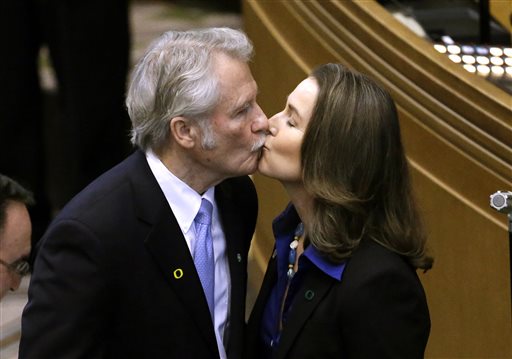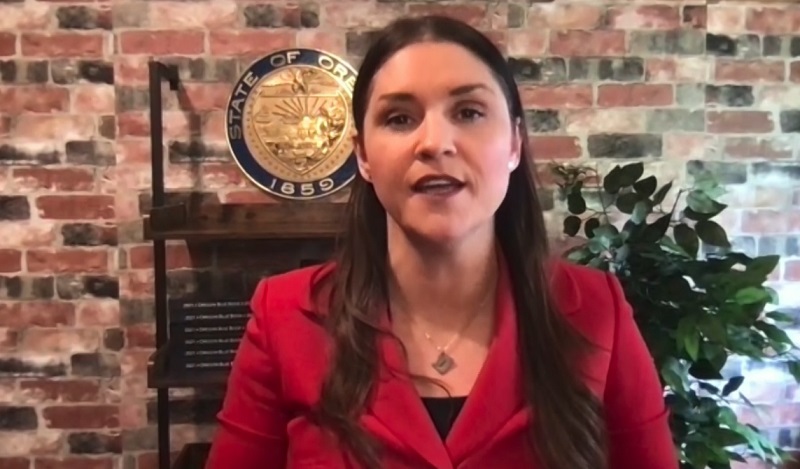PORTLAND, Ore. (KOIN) — At a state level, Shemia Fagan’s resignation as Oregon Secretary of State is second only to the 2015 resignation of Governor John Kitzhaber shortly after his inauguration for his 4th term.
The Kitzhaber resignation had a similar theme to Fagan’s: whether that state office was being used for undue influence.

The genesis of the Kitzhaber resignation began when it came to light that his fiancée, Cylvia Hayes, had lucrative environmental consulting contracts. Some thought she would not have received the contracts without her relationship to the governor.
He faced a state criminal investigation.
“There’s some similarities here, because we can really ask what is the likelihood that a company that’s being regulated by the Secretary of State’s office would be willing to pay $10,000 a month to somebody were they not the Secretary of State?” said Lewis & Clark law professor Tung Yin.
Yin said it might be less tempting for state officials to take outside employment if the state increased their pay. Fagan’s salary as Secretary of State was $77,000 a year.
Reed College political science professor Chris Koski wondered whether these scandals would get as much attention in other places.

“People that pay attention to Oregon politics have a higher bar, I think, for ethics maybe than other states,” Koski told KOIN 6 News. “So, for example, the Hayes-Kitzhaber scandal, I’m not sure that that would have made a huge dent in Kitzhaber where he a governor, say, in New Jersey or Illinois or something like that. Similarly the case of Fagan.”
Kitzhaber stepped down after he met with the then-leader of the state Senate, Peter Courtney, and the then-Oregon Speaker of the House — Tina Kotek.
Kotek told Kitzhaber it was time to go.
Koski wondered if Kotek played a similar role this time.
How the Kitzhaber-Hayes case ended
On June 16, 2017, more than 2 years after Kitzhaber resigned as governor, the US Department of Justice issued a short statement:
“The investigation by the United States Attorney’s Office for the District of Oregon, the Justice Department’s Criminal Division, the Federal Bureau of Investigation, and the Internal Revenue Service – Criminal Investigation into the alleged misuse of former Governor Kitzhaber’s and Ms. Hayes’s positions for their personal benefit has concluded and no federal criminal charges will be sought. The United States will not comment further on this matter.”
Nearly a year later, Kitzhaber accepted a $20,000 civil penalty related to 10 violations of state ethics laws.
A year after that, the Oregon Ethics Commission accepted a settlement agreement with former first lady Cylvia Hayes. The commission agreed to let Hayes pay a fine of $50,000 after she was accused of committing 22 violations of state ethics laws.